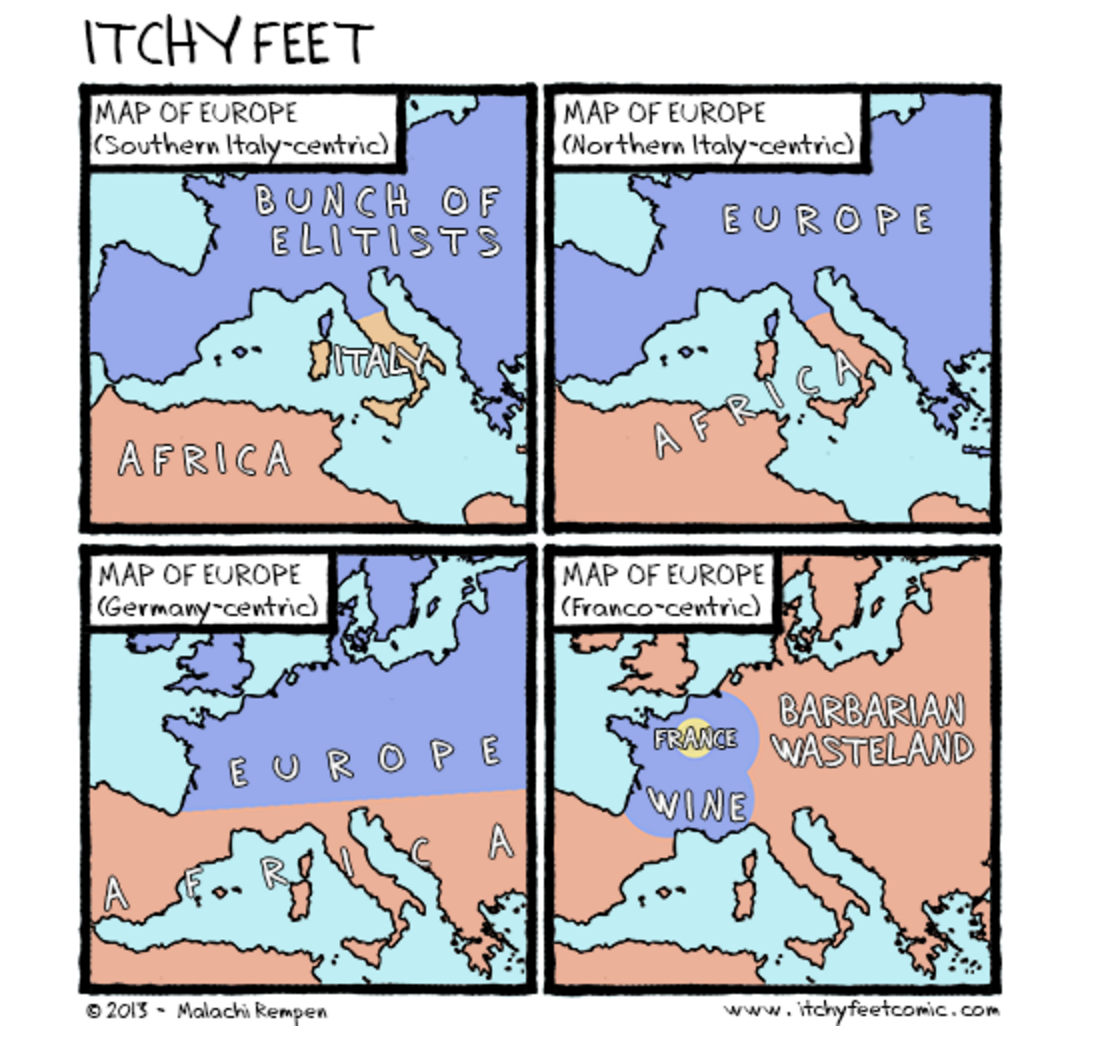Whose Language Are You Learning? Posted by Malachi Rempen on Jun 20, 2016 in Archived Posts
When learning a new language, it will at some point become important to know which language you’re learning.
What?
Here’s the thing. There’s no such thing as a single language; meaning, there’s no objective object we can point to as “the German language,” or any language for that matter. It’s all in our collective heads. It’s not even like the metric system, for which there is a concrete, foundational “meter bar” and “prototype kilogram” locked up France’s International Bureau of Weights and Measures to which we can refer. Language is a fluid, organic, constantly changing beast, and there’s no “original” for any language; there’s only the accepted “standard” version.
So perhaps it’s more accurate to say that it is important to know whose language you’re learning.
For instance, take Italian. For most of the country’s history, there was no one single Italian language – since for most of the country’s history, Italy wasn’t a single country, but bickering city-states, each with their own language and culture and offensive gesticulations. Although I’m oversimplifying, the basic story is that Dante Alighieri’s Divine Comedy was the inspiration for a “canonical” Italian, and he wrote in his native Florentine dialect – so in effect, current standard Italian is rooted in Florence.
Florence is in Italy’s northern half. This is important to know when studying Italian, especially if you intend to speak to anyone from the south. Southerners are very proud of their local cultures, particularly language. Although in big cities of course they speak standard Italian fluently, you’re going to get a lot of idioms, phrases and hilarious insults that will soar over your head. That’s part of the fun, of course, learning all the cultural peculiarities – but be aware that if you’re learning schoolbook Italian, you’re actually learning a northern dialect.
Similarly, if you’re living in a foreign country and picking up the language locally, there will come a time when you’re painfully aware that you didn’t learn the standard version.
A good friend of mine spent his senior year of high school studying abroad in Switzerland, in a tiny little village called Näfels. He went to school there, where he picked up Swiss German and, so he claimed, standard, or “high” German as well – that being the kind spoken widely in Germany. I was quite jealous at the time, as I’d been raised by a German dad and a German-fluent mom who somehow neglected to teach us German growing up. I’ll never forget the day my friend returned and visited my parents and I back home: he opened his mouth to speak to my dad, who looked at him funny and said, “you learned the wrong German.”
He meant it as a joke, of course (a Swissman would fiercely insist that so-called “high German” is the wrong German) but the lesson remains – there’s no such thing as an objective, “true” German if you plan on spending any time outside Germany. (As a funny side note – my friend is now studying for his PhD in Vienna, Austria…so, needless to say, his accent has gotten even crazier.)
And let’s not forget Amerglish and Britglish, my made-up terms for the two pillars of “standard” English language. Neither is more “standard” than the other, and though there are really only minor differences between the two, you still kind of have to choose one or the other – it doesn’t work to spell it “tyre” but call the back of a car a “trunk.” It can be a headache for those just trying to learn the accepted international language.
What about you? What languages have you learned that rely on geography, or that have other “standard” versions you need to be aware of?

Build vocabulary, practice pronunciation, and more with Transparent Language Online. Available anytime, anywhere, on any device.





Comments:
Cliff:
What on earth is Britglish – what a stupid name for English!!!!!!!!!
Malachi Rempen:
@Cliff It’s better than Ireglish and Austraiglish…
clinical studies:
I’m learning Chinese though I’m having a hard time with the chinese characters
Transparent Language:
@clinical studies Hi! We include pinyin in our content to help learners and have a pinyin guide to familiarize you with that system. But if you’re looking for tips on learning the characters, our friend Olly from Hacking Chinese wrote a really great guide: http://www.hackingchinese.com/my-best-advice-on-how-to-learn-chinese-characters/